Handshake style quiz
Embark on a revealing journey with the Handshake Style quiz, where your handshake becomes a mirror to your social and personal traits. This quiz delves into how different handshake styles - from firm and brief to the lingering grip - can uncover aspects of your personality, like confidence, assertiveness, or reservation. Gain insights into how your approach to this common social gesture reflects deeper aspects of your character and how you are perceived in your social and professional circles.
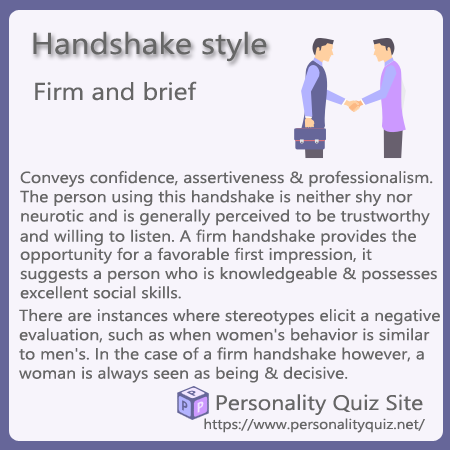
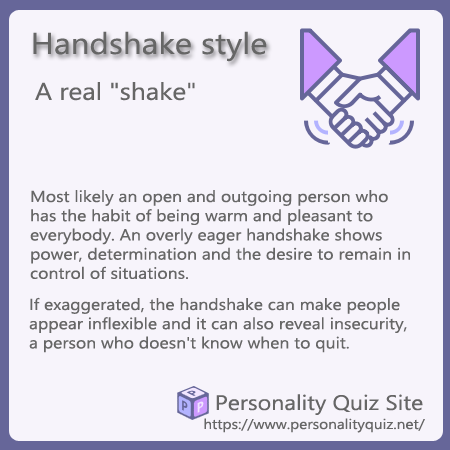
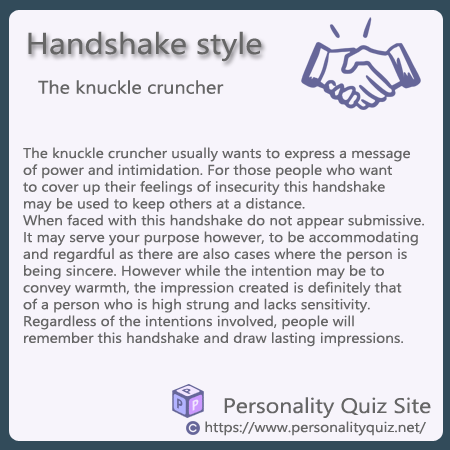
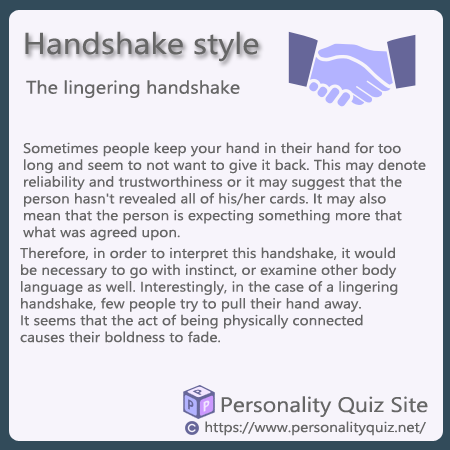

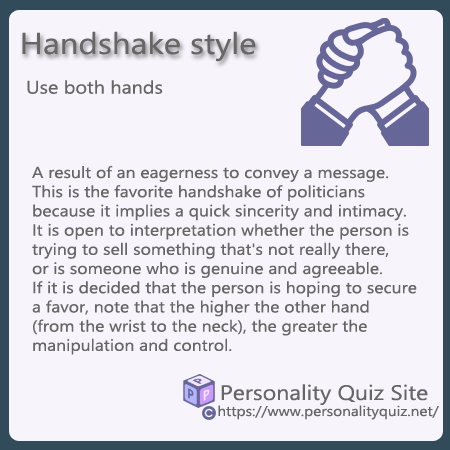
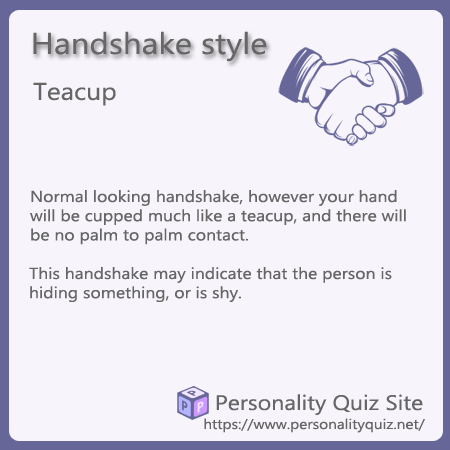
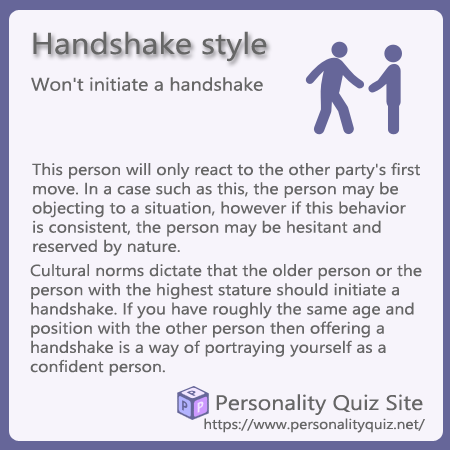

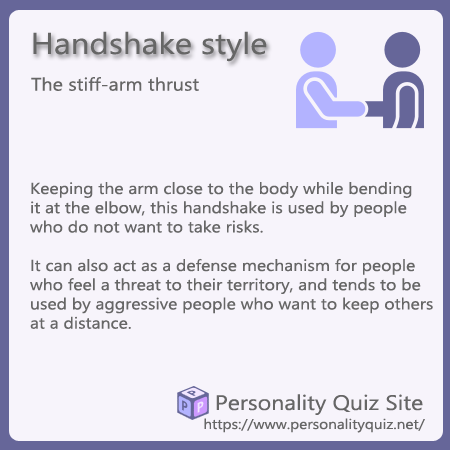



Comments (1)
May be useful stuff.